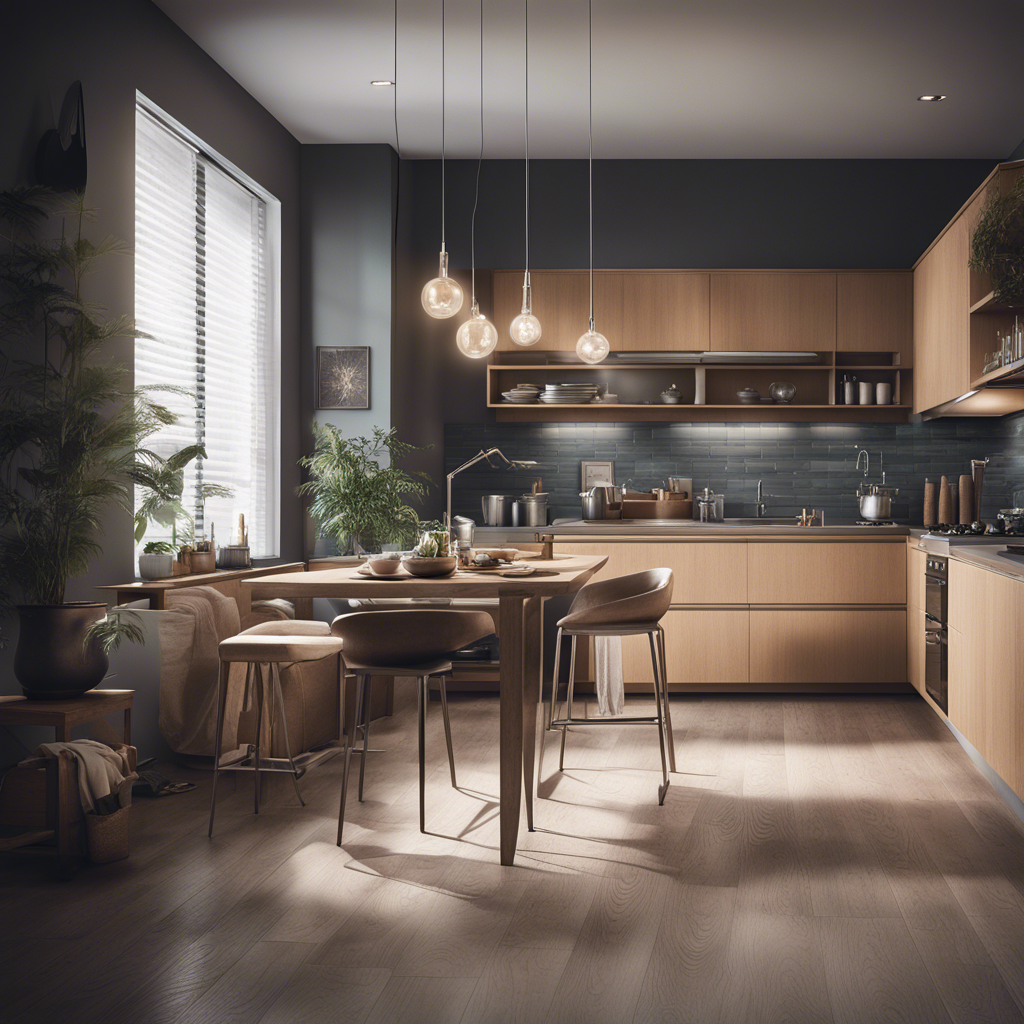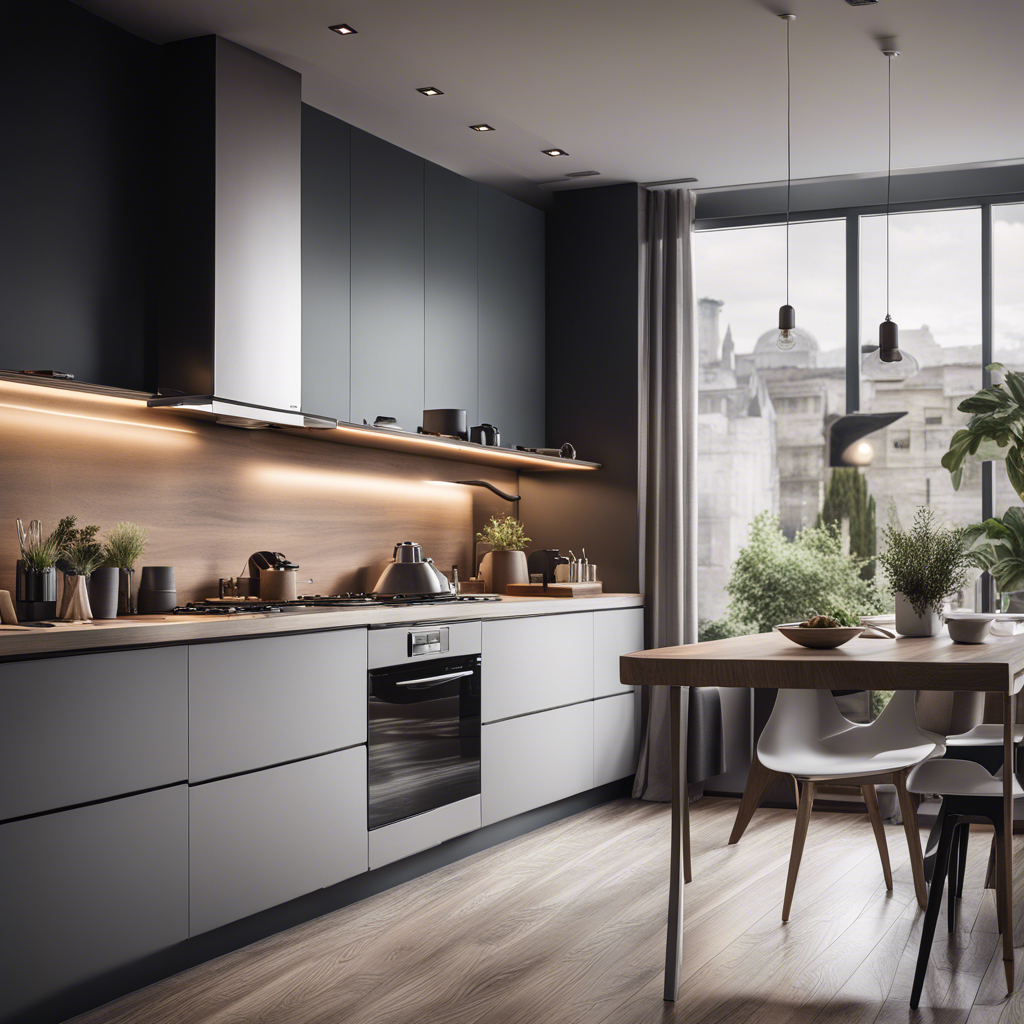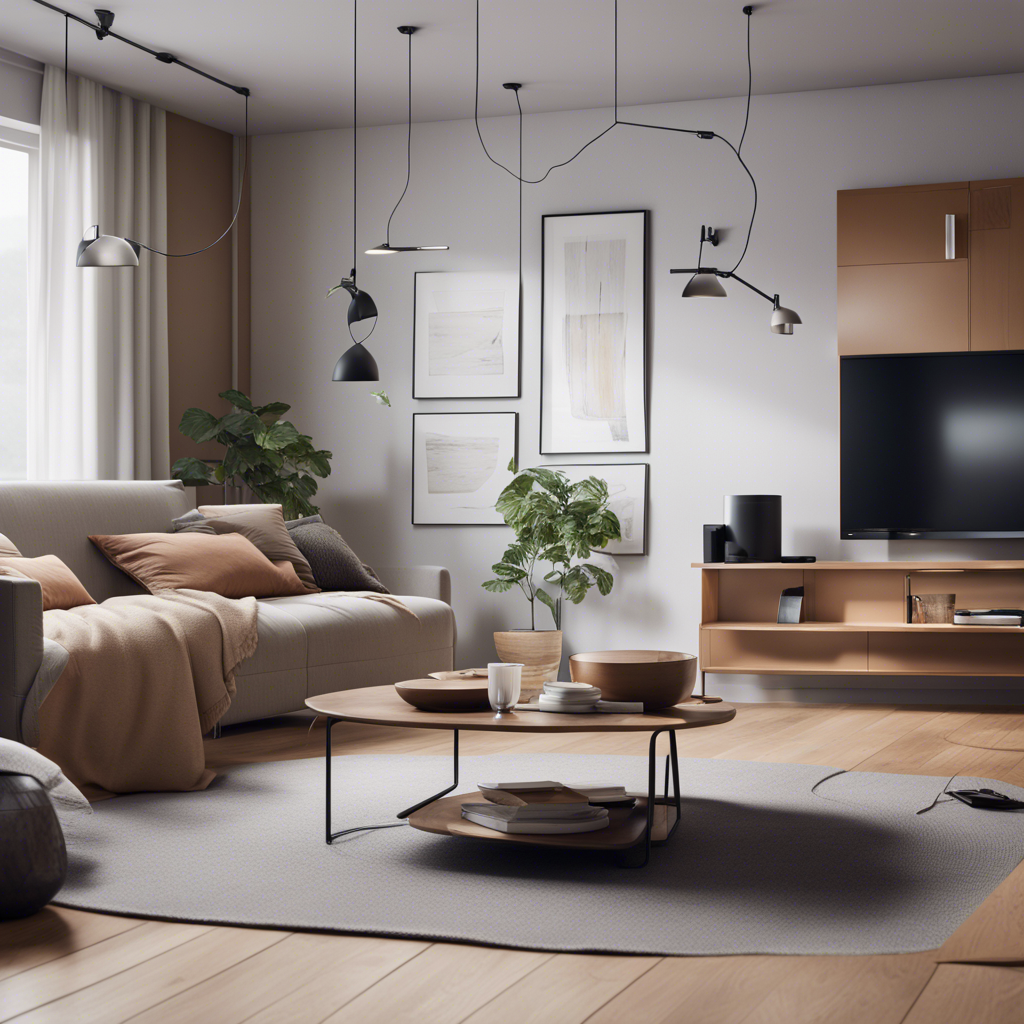From Smart Lights to Smart Kitchens: Transforming Your Living Space
In today’s rapidly evolving world, smart home technology is revolutionizing the way we interact with our living spaces. From controlling lights with a simple voice command to having your refrigerator plan your meals, the integration of smart technology into our homes is a fascinating journey into the future. As technology continues to advance, our homes are becoming not only more convenient but also more energy-efficient and personalized to fit our lifestyles.

Smart technology isn’t just about convenience; it’s also a powerful tool for energy management and environmental sustainability. For instance, smart lighting solutions can significantly reduce energy consumption, while smart kitchens are paving the way for less wasteful, more sustainable household practices. Understanding these technologies and their applications can help you make informed decisions to improve your quality of life and contribute positively to the environment.
Smart Lighting Solutions
The impact of smart technology on daily life is evident with smart lighting solutions, which offer remarkable versatility and efficiency. Smart lights are by far one of the entry points for many homeowners venturing into the world of smart home devices. These lights can be controlled remotely or through automation systems and are highly customizable to suit various preferences and needs.
Types of Smart Lighting
There are several types of smart lighting solutions, including smart bulbs, smart switches, and integrated smart lighting systems. Smart bulbs, like those offered by Philips Hue, can be adjusted in terms of brightness, color, and even programmed to operate on schedules. Smart switches, on the other hand, allow you to control existing lighting fixtures without replacing the bulbs themselves. This makes them a flexible option for homeowners wanting to retain the aesthetic of their existing lamps or fixtures.
Integrated smart lighting systems combine these elements into a single, cohesive system that is often controlled through a dedicated app or a central smart home hub. These systems can create dynamic lighting environments, from synchronizing lights with the beat of music to simulating natural daylight cycles for enhanced well-being.
Practical Applications
One practical application of smart lighting is enhancing home security. Smart lights can be programmed to mimic occupancy, deterring potential intruders when you are away. Additionally, smart lighting can be linked to motion sensors to illuminate paths when you enter a room, providing safety and convenience during nighttime hours.
Beyond security, smart lights also contribute to energy savings. According to the U.S. Department of Energy, LED lighting, which is commonly used in smart bulbs, uses up to 75% less energy and lasts 25 times longer than incandescent lighting. By incorporating smart lighting into your home, you can significantly reduce your energy bills.
Smart Kitchen Technology
The kitchen, often considered the heart of the home, is being transformed by smart technology, which brings efficiency and excitement into everyday cooking and food management. Smart kitchen technology is not only about having fancy gadgets but about creating a seamless, connected experience that makes daily cooking and food storage more innovative and efficient.
Smart Appliances
Smart appliances, such as refrigerators, ovens, and dishwashers, are central to this transformation. Refrigerators from brands like Samsung’s Family Hub offer features like interior cameras to help with inventory management, or even recipe suggestions based on available ingredients. Similarly, smart ovens can be preheated remotely and offer guided cooking, streamlining meal preparation processes.
Kitchen Automation
Automation in the kitchen is another aspect that’s gaining popularity. Coffee makers that start brewing at sunrise, or smart scales that help in measuring ingredients more accurately, contribute to this automated experience. Integrations with voice assistants like Amazon Alexa or Google Assistant further enhance control, allowing you to manage devices simply through voice commands.
Energy Efficiency and Sustainability
Smart kitchen technology is also about promoting sustainable living. For example, smart dishwashers can optimize water usage based on the load size, and smart refrigerators help reduce food waste by alerting you to expired items. With these appliances, you’re not only saving time but also reducing your carbon footprint.
Home Automation and Smart Home Trends
The concept of home automation extends beyond individual devices, integrating various smart home devices into a seamless network that enhances your everyday living experience. With the advent of the Internet of Things (IoT), the trends in smart home transformation are rapidly evolving, offering even more control and customization over your living space.
Integration of Smart Devices
One of the most significant trends in smart home technology is the integration of diverse smart devices into a unified system. Platforms like Google Home or Apple’s HomeKit provide centralized control, allowing users to manage their lighting, security, thermostats, and more from a single interface. Such integration enhances the user experience by offering convenience and saving time.
Voice and Gesture Control
The influence of voice assistants has been profound, with companies like Amazon and Apple leading the charge. Voice control offers a hands-free approach to managing your smart home devices. Moreover, gesture control is emerging, where simple hand movements can command smart devices, making interactions more intuitive and accessible.
Trends in Smart Living Spaces
As more households adopt smart technology, the trends continue to evolve. One notable trend is the shift towards sustainability, with energy-efficient designs and solutions being a priority. Products that offer eco-friendly capabilities are in high demand, as reflected by the increasing popularity of devices that monitor and optimize energy consumption.
The rise in smart home subscriptions for services providing regular updates and new features as technology progresses further illustrates these evolving trends. Smart home technology is becoming more inclusive, adapting to various budgets and needs, and making it possible for more people to enjoy the benefits of a smart living space.

How do smart lights contribute to energy savings?
Smart lights are designed to be more energy-efficient than traditional lighting solutions. For example, smart bulbs often use LEDs, which consume significantly less electricity than incandescent bulbs. Additionally, smart features like scheduling and automation ensure that lights are on only when needed. According to the Energy Star program, using smart LEDs can save households considerable amounts of money annually on energy bills.
What are the key benefits of integrating smart kitchen technology?
Smart kitchen technology offers numerous benefits, including enhanced convenience and efficiency in cooking and food management. Smart appliances help reduce food waste, optimize energy and water usage, and provide a more personalized cooking experience. Additionally, the ability to control appliances remotely means you can start cooking before you arrive home, saving time and energy.
How can home automation improve security?
Home automation improves security by integrating smart surveillance cameras, smart locks, and lighting systems. For instance, smart cameras can alert you of unusual activity, while smart locks can ensure your home’s entry points are secure. Automated lighting systems replicate occupancy, which can deter intruders. Brands like Ring and Arlo offer comprehensive security solutions that enhance home safety.
Are there privacy concerns associated with smart home devices?
Like any technology connected to the internet, smart home devices pose some privacy risks. However, taking precautions such as using strong, unique passwords, enabling two-factor authentication, and keeping software updated can mitigate these risks. It’s also advisable to understand the privacy policies of the devices you use. Organizations like Consumer Reports provide guidelines to protect your smart home privacy.
What is the future of smart home technology?
The future of smart home technology lies in more integrated and intuitive systems. We expect continued advancements in AI, which will lead to even smarter predictive systems that understand and adapt to user habits more accurately. Furthermore, as technology evolves, smart home devices will become more accessible to a broader audience, facilitating widespread adoption and covering all aspects of home living. According to Forbes, innovation in smart home technology is poised to make homes more responsive to individual needs and environmentally friendly.
Conclusion
The transformation of living spaces through smart technology is a trend that’s here to stay. By integrating smart lighting solutions, advanced kitchen appliances, and comprehensive home automation systems, homeowners can enjoy enhanced convenience, efficiency, and security. The impact of smart technology on daily life is profound, offering a glimpse into a future where mundane tasks are automated, and our living environments respond to our needs in real-time.
As smart home trends evolve, the emphasis on sustainability and energy efficiency becomes more pronounced. This shift not only benefits individuals in terms of cost-saving and convenience but also contributes positively to environmental goals. Resources like CNET’s Smart Home Guide can offer additional insights and tips for those looking to delve deeper into transforming their home environment with smart technology.
For those just beginning their smart home journey, or those looking to update existing technology, it’s important to choose products carefully and keep abreast of new developments. By doing so, you can ensure that your home remains at the forefront of modern living spaces.
For a deeper dive into these exciting advancements, consider exploring video content that covers topics like:
- The Evolution of Smart Home Technology: Past, Present, and Future.
- Step-By-Step Guide to Setting Up Your Smart Kitchen.
- Top Smart Lighting Solutions of 2023 for Every Budget.



